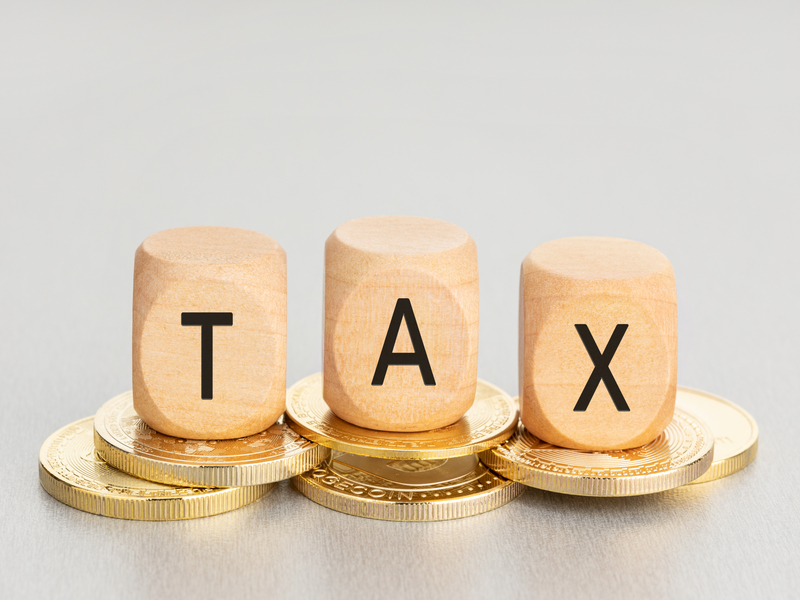

Despite Vietnam’s poor standards in the 1900s, it has risen to become the 37th largest country with its Nominal Gross Domestic Product (GDP) and the 23rd largest by Purchasing Power Parity (PPP) according to the World Bank. The transformation to a middle-income economic country in just a generation is hugely based on its income generation and foreign investors. Like every other country, the personal income tax in Vietnam for foreigners has specific policies and rates. This is influenced by the need to promote the country’s welfare and create a sustainable economic atmosphere for both residents and foreigners to enjoy.
A Personal income tax is a fraction of your earnings through business, wages, salaries, inheritance, interest, or dividends that will be given to the government. Like every country, the percentage of personal income tax in Vietnam for foreigners solely depends on the income, amount of earnings, and the period of income. Nonetheless, both residents and nonresidents are susceptible to paying their income taxes only the rates will only be different.
Who are those eligible to be charged for personal income tax in Vietnam?
Residents of Vietnam
Apart from those who were given birth in the country and still live in it, you will be considered a resident if you have been present in Vietnam for at least 183 days in a calendar year or for 12 consecutive months from the first day of his/her presence in Vietnam (the date of arrival and date of departure are considered 01 day). The date of arrival and date of departure depends on the certification of the immigration agency on the passport (or laissez-passers) when that person enters and leaves Vietnam. If you stay in Vietnam for more than 90 days but fewer than 183 days in a tax year, or you can prove that you are a tax resident of another country in the 12 consecutive months following the date of arrival in Vietnam, you will be treated as a non-resident in Vietnam for tax purposes . If you have a permanent residence that has been registered pursuant to the Law on Residence or you have a leased residence to stay in Vietnam where the lease contract has a term of 183 days or more within the tax assessment year, you are also considered a resident.
Non-resident in Vietnam
You are considered a non-resident taxpayer when you have a tangible income service running in Vietnam, but you did not meet up with the definition of being a resident aforementioned. You are eligible for personal income tax rates but as a non-resident. If you also represent a branch of a foreign corporation or organization and haven’t surpassed the speculated days, you are a non-resident member.
What is Vietnam’s Personal income tax rate?
The personal income tax rates of Vietnam are calculated based on your type of residency. Residents are taxed in accordance with the amount generated in almost all sections; they could gain personal incomes. In contrast, Non-residents’ income taxes are solely based on a flat percentage but with exceptions of some categories of income generation.
Non-Resident Personal Income Tax rate
The personal income rate of non-residents is a fixed rate of 20% for salary and wage earners of their total income in a tax year.
If the income is generated from business and the production of goods, your tax rate will be 1%.
If the income is generated from businesses and the production of services, your tax rate will be 5%.
Incomes generated from Manufacturing, transport, construction, and other closely related activities have a personal tax rate of 2%.
Incomes generated from lottery wins, gifts and inheritance, which is the excess over 10 million VND of the prize won/the inheritance or gift received, have a personal tax rate of 10%. There is an exception of Casino winnings’ income in the category of Lottery wins.
If the income is sourced from Copyright and franchise activities and excess over 10 million VND of income from each contract, then the personal tax rate is 5%.
Transfer of real estate is taxed at the rate of 2% for personal income tax.
Other categories of taxes that fall under this section are the transfer of capital and incomes from capital investments which have tax rates of 0.1% and 5%, respectively.
Resident Personal Income Tax rate
Incomes between VND of 0 and 60,000,000 is charged with a 5% personal income tax;
Incomes from above VND 60,000,000 to 120,000,000 is taxed at 10%;
Incomes from above VND 120,000,000 to 216,000,000 is taxed at 15%;
Incomes from above VND 216,000,000 to 384,000,000 is taxed at 20%;
Incomes from above VND 384,000,000 to 624,000,000 is taxed at 25%;
Incomes from above VND 624,000,000 to 960,000,000 is taxed at 30%;
Incomes more than VND 960,000,000 is taxed at 35%.
Special conditions in Vietnam Personal income tax rates
The residents of Vietnam are taxed based on the amount of income, but there are limitations to this. Income generated through copyright, franchise investments, and capital investments is considered to be different from other types. Vietnam has a personal income tax rate of 5% for these categories of residents.
Income received from foreign sources by the residents is also taxed in Vietnam. The tax rate relies on the double taxation policies involved with the foreign country and the nature of investments. Scholarships, remittances from overseas businesses, transfer of real estate between family members, and other non-taxable incomes are left untaxed.
Vietnam isn’t concerned with the personal income taxation policies of their foreign investor’s country. They deduct a fraction of the rate written in their legislation, and the investors sort the double taxation processes way out themselves.
How to pay income taxes as a foreigner in Vietnam
Vietnam’s internal revenue generation uses the State Treasury for its operation. You are to be held accountable to declare your income tax at the end of a tax year before the deadline assigned for each tax payment. If you are an individual, you can proceed to sort out your taxes yourself.
In cases of Foreign-Investment Enterprises (FIEs), there will be a need to conduct a personal income tax calculation for each of your employees by the enterprise. After this, you will gather the combined tax in PIT Finalization files, which will contain an annual income summary and the personal income tax letter. Then, they can pay either in cash or via bank transfer to the State Treasury.
How can we help you?
A lot of foreigners face the wrath of tax authorities in Vietnam. This might be from a failure to submit before the deadline, an amateur preparation of the personal Income Tax (PIT) Finalization file, or a misunderstanding of the tax rate policies. This is where we come in.
Premia TNC understands each enterprise’s basic needs and the complexity involved in taxation, auditing, and accounting. With a team of the industry’s best professionals in each department, we take on any obstacles you might encounter in no time, thereby providing the best service experiences.
FAQs
When is the deadline to pay my income tax?
Within 90 days after the end of a tax year.
Is the Vietnam taxation process easy to complete without trouble?
Yes, it is. Premia TNC is ready to assist you with your taxation procedures and finalizations.
Can I evade taxation in Vietnam?
No. You might have decreased your tax rate if you fall under special categories, but you cannot evade tax authorities.



premiatnc
View All BlogsRelated Posts
May 2, 2024
From Traditional to Digital: Looking into the Vietnam B2B E-Commerce Shift
In recent years, Vietnam's business…
April 16, 2024
The Ins and Outs of a Limited Liability Company in Vietnam
Establishing a business in Vietnam can…
March 22, 2024
Unlocking Avenues: Discovering the Best Business Opportunities in Vietnam
Nestled in Southeast Asia, Vietnam is…




